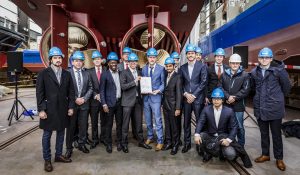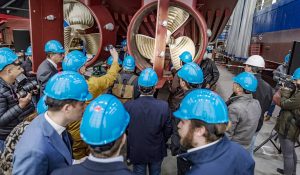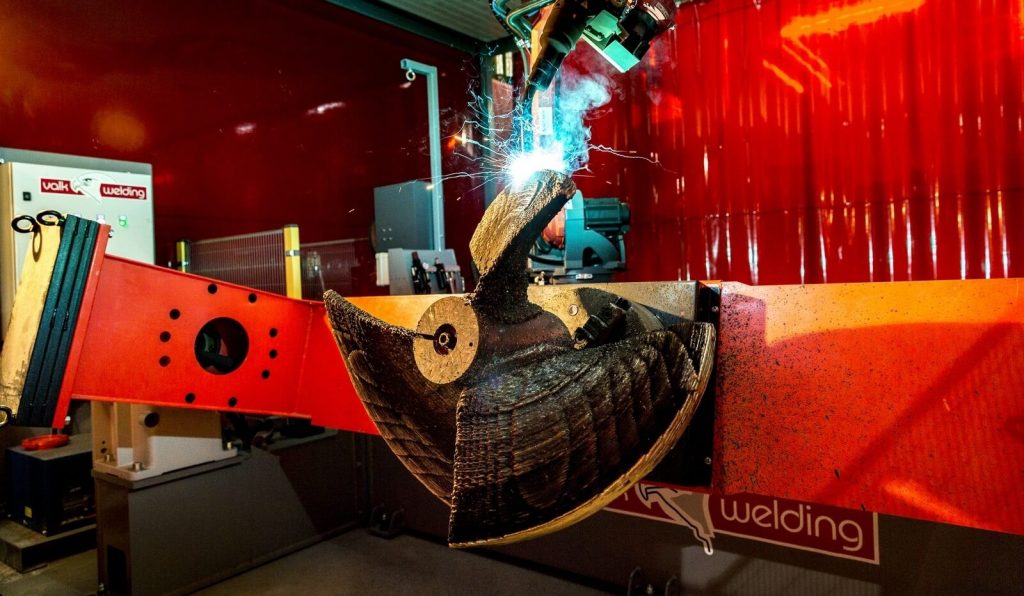The worlds first class approved 3D printed ships propeller, the WAAMpeller, has been unveiled at Damen Shipyard Groups headquarters in the Netherlands, following a rigorous testing process, verified by Bureau Veritas.
This ground-breaking success is the result of a close collaboration between RamLab, Promarin, Autodesk, Bureau Veritas and Damen, said an official statement.
The statement further explained how the five-company partnership started pooling their collective resources and knowledge to develop the worlds first 3D printed ships propeller seven months ago. Promarin provided the design of the triple-blade propeller. The Port of Rotterdams RamLab (Rotterdam Additive Manufacturing LAB) carried out fabrication using Wire Arc Additive Manufacturing (WAAM) techniques, supported by Autodesks expertise in software, robotics and additive manufacturing. Damen provided R&D resources in addition to one of its Stan Tug 1606 vessels for operational testing purposes. Bureau Veritas role was to verify the entire development, production and testing process.

The consortium reached its first milestone in August with the completion of the first WAAMpeller prototype. With valuable experience gained, production of the second version, with the aim of achieving class certification, started immediately.
Vincent Wegener, managing director, RamLab, said: Production of the second WAAMpeller was greatly improved because we had learned a lot from producing the prototype. This mainly concerned the hardware/software interaction because, when laying down 298 layers of Nickel Aluminium Bronze alloy, it is important to have a tight control on all process parameters.”
With the second WAAMpeller complete, the project then progressed to the testing stage, the first phase of which saw the WAAMpeller installed on a Damen Stan Tug 1606.
Martin de Bruijn, managing director Workboats at Damen, said: This particular vessel is of extra interest in that it is equipped with a Tier III compliant engine, making it future proof for the ever stricter environmental rules and regulations in harbours around the world.
 Damens testing engineers performed operational testing of the WAAMpeller on November 20, with representatives from all of the consortium partners present. Furthermore, the days procedures were overseen by Bureau Veritas surveyors throughout.
Damens testing engineers performed operational testing of the WAAMpeller on November 20, with representatives from all of the consortium partners present. Furthermore, the days procedures were overseen by Bureau Veritas surveyors throughout.
Martijn Nieuwenhuijs, chief executive of Bureau Veritas Marine & Offshore Netherlands, said: We have witnessed every step of the making and testing of the WAAMpeller. Some challenges needed to be tackled along the way, but the final product is technically sound and ready for commercial application.”

